- Home
- Jim Eldridge
Murder at the Ritz Page 4
Murder at the Ritz Read online
Page 4
‘We know one of ’em does. The bloke who phoned you.’
‘Count Ahmed, and it was his suite the dead body was found in. The King says he’s away at the moment. I’ve asked for him to get in touch with me, but I don’t know how much useful information I’ll get out of him.’ Coburg picked up one of the two remaining photographs of the dead man. ‘This might be the thing that gets people opening up. I’ll head back to the Ritz and show it around while I’m there.’
‘Want me to come with you, guv?’
Coburg did his best to hold back a smile as he replied: ‘No, thanks, Ted. I shall be taking this to the Pink Sink and seeing if anyone recognises him, and your frowns of obvious disapproval may make the punters there clam up.’
Lampson scowled. ‘Bloody deviants.’
‘It takes all sorts to make a world, Ted.’
‘Right, guv. Oh, I got us a car.’
Coburg gave a sigh. ‘Ah well. It had to happen.’
‘D’you want to take it now?’
Coburg shook his head. ‘I think I’ll hang on to the Bentley for the rest of the day, and we’ll do the changeover later, if that’s all right with you?’ He grinned. ‘You take it when you go and see Duncan. Test it out.’
The Lower Bar at the Ritz was almost empty when Coburg walked in, just a few men, mostly of an older generation, to judge by their hair and their outfits which harked back to the 1920s. The younger set would arrive later, many in uniform, often with adornments such as a flower affixed to a buttonhole.
Coburg made for the bar, where the barman was wiping glasses.
‘Hello, Mr Coburg,’ the man greeted him. ‘We don’t often see you in the lower depths. What brings you here?’
Coburg took the photo of the dead man and laid it on the bar.
‘Trying to identify this man,’ he said.
The bartender studied the photo, then shook his head.
‘Sorry, Mr Coburg. Never seen him. But I’ve heard about him right enough.’
‘Then you know who he is?’ asked Coburg, suddenly feeling hopeful.
The man shook his head again.
‘I’m guessing he’s the bloke who was found dead upstairs because everyone’s talking about it, and this bloke looks dead. But as to who he is …’ He shrugged. ‘No idea. And nor has anyone else, by all accounts.’
‘My God, Coburg, it is you!’ barked a voice behind them.
Coburg turned and found himself looking at the obviously drunk figure of Guy Burgess.
‘I never thought you’d end up here.’ Burgess smirked. ‘Half of Eton, yes, but I always assumed you were on the other team, like that dreadful womanising lecher Fleming.’ Then his eyes narrowed as he asked suspiciously. ‘Or is this you in your Lily Law role, come to strongarm the buggers and march us off to jail?’
‘Rest assured, Burgess, I am here in my official capacity, but nothing to do with you or any of the clientele. I just had a question or two for the staff.’
Burgess turned his attention to the barman.
‘Careful,’ he warned. ‘The old school tie isn’t what it seems to be with Coburg here.’ He turned to Coburg. ‘Anyway, shouldn’t you be out defending us against the Hun? You were military in the First World War, I’d have thought you’d have been shooting down these German bombers who are giving us such a pounding.’
‘I was in the army, not the air force,’ said Coburg. ‘And the Selection Board deemed me not to be suitable due to my reserved occupation, injuries received during the first lot and my age. What’s your excuse?’
‘Special Operations,’ muttered Burgess. ‘Someone needs to be around to defend the capital when the Hun finally get here. The RAF can’t resist the Luftwaffe for ever. They’ve got about a thousand bombers to unleash on us and in the last week alone, they’ve put most of our airfields in Kent and Sussex out of action. Hundreds dead. Towns and villages bombed. Two weeks, that’s what the experts give us. Two weeks and the RAF will be destroyed, opening the way for the invasion.’
‘You’re very well informed,’ commented Coburg, his tone bland.
Burgess tapped the side of his nose conspiratorially. ‘Like I said, Special Operations.’
Coburg lifted the photograph of the dead man off the bar and held it out to Burgess.
‘Perhaps you might recognise this man?’ he asked.
Burgess took the photo and studied it. At last, he said: ‘He looks dead.’
‘He is,’ said Coburg.
‘Not very attractive, is he?’
‘Being dead does that to some people,’ replied Coburg.
Burgess sniffed. ‘He doesn’t look like he was ever attractive.’ He handed the photo back to Coburg. ‘Sorry, no.’
As Coburg walked into the marble-floored reception area at Scotland Yard, he was hailed by the sergeant on duty at the desk. ‘There’s a gentleman waiting to see you, Chief Inspector. Sir Vincent Blessington from the Foreign Office, he says. He arrived about twenty minutes ago. I told him you were out and suggested he leave a number and that you’d phone him when you got back, but he said he was happy to wait.’
‘Sergeant Lampson not back yet?’
‘No, sir. Otherwise I’d have let him know about the visitor.’
‘Yes, of course. Where is this Blessington fellow?’
‘He’s over there. In the brown overcoat and carrying a briefcase.’
‘Thank you, Sergeant.’
Coburg turned and saw amongst the people sitting waiting on the benches the man from the Foreign Office. Even sitting down, there was something that marked him out from the rest: his stiff-backed military posture, the expensive clothes, the bowler hat resting on his knees. The others waiting on the benches were a motley crew, some obvious ruffians, a few lawyers, women wrapped in thick coats. Coburg strode over to the diplomat.
‘Sir Vincent Blessington?’ he enquired, and held out his hand. ‘I’m Chief Inspector Coburg. I’m sorry to have kept you waiting. Please, let’s go to my office.’
Blessington got to his feet, shook Coburg’s hand, then followed the chief inspector to the wide stone staircase and up to the first floor. Neither man spoke, and for once Coburg wasn’t able to read anything from his visitor’s face. Was this a friendly visit or a warning to back off? he wondered. Once they were safely in Coburg’s office, Blessington seemed to relax, taking the chair to which Coburg gestured him.
‘Bit of a mess at the Ritz,’ Blessington said with a rueful frown.
So, we get right to it, thought Coburg. He asked: ‘Do I assume you have an interest in the King?’
‘A foreign monarch setting up court here in London is always of interest to the Foreign Office.’
‘Is this a gentle warning not to tread on the Foreign Office’s toes?’ asked Coburg.
‘Oh no,’ said Blessington. ‘Rather the opposite. The official line with regard to Albania is that we keep them at arm’s length at the moment.’
‘But unofficially?’
‘Let’s just say we’re more interested in the King once the war is over. There are going to be major changes in Europe when this is through, and especially in Eastern Europe. Albania may be just a tiny country, but it’s right in the heart of what could well be a communist bloc, if the Russians have their way.’
‘The Russians aren’t in the war,’ Coburg pointed out. ‘They have a non-participation treaty with the Nazis.’
‘Which means they can move in any direction. At this moment Stalin doesn’t want to fight a war because he intends to expand Russian influence and take over whatever parts of Europe the Germans will let him have. But that could well change when the Germans feel the Russians are becoming too large, creating their own empire of military influence right on their northern border.’
‘So, you want to keep in with the King while at the same time being seen to be not too strongly on his side?’
‘Just until we see how things turn out with Albania. The King isn’t the only player in the game there. I understand you met wi
th him in his suite.’
‘Yes,’ said Coburg. ‘He wants us to find out who the dead man is, and why he was there.’
‘From what I can gather, the people at the Ritz, including the various kings and queens in exile, seem to view you as “one of us”, as they call it. The name and title, I suppose. Saxe-Coburg.’ He looked quizzically at Coburg. ‘The royal family used to be Saxe-Coburgs before they changed their name to Windsor.’
‘Saxe-Coburg-Gotha,’ corrected Coburg.
‘Still, it’s close,’ said Blessington. ‘Close enough to suggest there might be a connection. At least, that’s what the gossip is.’
‘Most of the older families of Europe are related in some part,’ said Coburg. ‘And I won’t deny it can be useful in gaining entry to places that can be difficult.’
‘Yes, that’s what we thought. So, we’d quite like it if you can keep us in the picture with anything you come across.’
‘If the Foreign Office is involved, do you think the dead man might have been an alien, part of a foreign conspiracy against the King?’
‘That may turn out to be the case,’ said Blessington. He stood up, taking a card from his pocket as he did so, passing it to Coburg. ‘My contact phone number at the Foreign Office, if anything of interest turns up. My home telephone number is written on the back, in case something important happens and you can’t get hold of me at the FO.’
Coburg took the card and shook Blessington’s hand.
‘Do you want me to see you out?’ he asked.
‘No, I think I can find my way,’ said Blessington genially. ‘I’ve been here before.’
Coburg sat at his desk and examined the visiting card Blessington had left him, with the number of his extension at the Foreign Office added to the switchboard number. He flipped it over to the diplomat’s home phone number, which had a Maida Vale code. So, someone with an expensive address and a knighthood, not just a run-of-the-mill government emissary.
There was a knock at his door. Possibly Sir Vincent had forgotten something, guessed Coburg, and he called: ‘Come in!’
The door opened and the bulky figure of James Hibbert, a senior inspector at MI5, entered.
‘Coburg,’ he grunted sourly.
Coburg gestured him to the chair opposite his, reflecting that he’d only met Hibbert on a few occasions, and on each the MI5 man had looked sour and aggressive. Bad digestion, Coburg decided.
Coburg smiled. ‘This is a coincidence. I’m guessing you’re here about a certain incident at the Ritz. And I’ve just said goodbye to a visitor from the Foreign Office.’
‘Yes, all right, Coburg, no need for the jokes.’
‘So, were your people following Sir Vincent or me?’
‘Not necessary. We have our contacts. When we got tipped that Blessington was here asking for you, we knew what was up.’
‘So, you waited until he left?’
‘It wouldn’t have been clever for me to come in while he was here, would it?’ snapped Hibbert.
‘Don’t you want to know what he said?’
‘No. I’m more interested in what you were doing meeting with King Zog and what he said to you. It was our impression the police investigation into the dead man in his suite was being put on ice, so to speak.’
‘Yes, it was. Until the King himself said he wanted our investigation to continue.’
‘Did he say why?’
‘He said he has many enemies, and he wants to know if this dead man was part of an attempt on his life.’
‘He’s had a few of those.’
‘I get the impression he’d rather like it if there weren’t any while he was in England. He’s concerned for his family’s safety.’
‘Not to mention two million in gold and cash,’ said Hibbert bitterly.
‘Have they asked for extra protection for it?’ asked Coburg.
‘No,’ grunted Hibbert. ‘But we’re keeping an eye on it anyway.’
‘How?’
‘Through Special Branch. Every now and then one of the King’s sisters, usually Princess Senije, goes to the local branch of the Westminster Bank, where she exchanges foreign currencies for sterling. She’s always accompanied by a posse of bodyguards, but Special Branch aren’t taking any chances. By all accounts, each trip involves thousands of pounds being brought back to their suite. That much cash on the streets is an open invitation to robbery.’
‘How do Special Branch know when the princess is doing a bank run? One of your people at the Ritz sets off the alarm, I suppose.’
‘Exactly. It’s not something that can easily be kept secret when the princess, accompanied by a small army of armed men carrying bulging satchels, leaves the hotel. Everyone knows where they’re going, and everyone knows what they’re carrying is foreign currency.’
‘So, it will only be worth attacking them on the way back, when it’s been changed into sterling.’
‘Correct. Which gives time for Special Branch to have their people waiting outside the bank.’
‘Surely the King’s people must be aware they’re being watched.’
‘I’m sure they are, but so far there have been no official complaints from the King or his family. Possibly they’re glad of the added protection. After all, Special Branch are more likely to spot London criminals lurking in the area.’
‘But not foreign criminals.’
‘They have a good idea of who’s who.’
‘By the way, I ran into one of your people today at the Lower Bar at the Ritz.’
‘Oh?’
‘Guy Burgess.’
Hibbert shook his head. ‘Not one of ours.’
‘Oh? I heard a rumour he was doing some work for you, in addition to his BBC stuff.’
Hibbert hesitated, then said: ‘Six.’
MI6, realised Coburg.
Hibbert got up and shot a warning look at the chief inspector.
‘You’re treading on dangerous ground with this one, Coburg. It’s not just one of your everyday robberies.’
‘Do you know who the dead man is?’ asked Coburg.
‘No,’ said Hibbert.
‘And you wouldn’t tell me if you did.’ Coburg smiled, getting to his feet.
‘Need to know,’ grunted Hibbert.
The door opened and Ted Lampson appeared, holding a large manila envelope. He stopped when he saw Hibbert.
‘Sorry, sir,’ he apologised to Coburg. ‘I didn’t realise you had a visitor.’
‘That’s all right, Mr Hibbert is just going.’
‘You should still have knocked anyway,’ Hibbert rebuked the sergeant sharply. ‘We could have been talking about something important.’
‘I keep no secrets from Sergeant Lampson,’ retorted Coburg. ‘We are a team.’
‘Huh!’ snorted Hibbert, and left.
Lampson put the envelope down on Coburg’s desk. ‘The photos, sir. Sorry it took me so long but Duncan’s a bit of a pain at insisting on doing everything right.’
‘I’m glad he is,’ said Coburg. ‘Photographs that don’t show our man properly won’t be much use.’ He opened the envelope and examine the photos inside. ‘Excellent,’ he said. ‘How was the car?’
‘It’s a runner,’ said Lampson. ‘It’ll do.’ He gestured at the door. ‘Who was that bloke just now? Old sourpuss.’
‘Inspector Hibbert from MI5. He was expressing an interest in the body at the Ritz and warning us off. Interestingly, I’ve had a visit from Sir Vincent Blessington, someone senior at the Foreign Office, who’s also interested in what happened at the hotel.’
‘Also warning us off?’
‘No, but he wants to be kept informed, unofficially.’
‘So, it’s politics,’ said Lampson unhappily. ‘There’s always trouble when it’s politics.’
‘At this moment, Ted, with a war on, nearly everything is politics,’ sighed Coburg.
CHAPTER SIX
George Criticos was at his hall porter’s station when Coburg entered that eveni
ng.
‘Mr Coburg!’ The man greeted him with a welcoming smile.
‘Good evening, George.’
‘Business or social this evening?’ he asked.
‘Social,’ said Coburg. ‘I’ve reserved a table in the Rivoli Bar.’
‘Ah, Miss Rosa Weeks!’ the porter beamed. ‘A superb performer. The guests have been raving about her. Would you like a table near her?’
‘No, thank you, George. We’re old friends and I don’t want my presence to put her off. Not that I feel it would, she’s too professional for that, but …’
George nodded. ‘I understand. A table about halfway back.’
‘That would be perfect. And, from a business perspective, is Count Ahmed back? He was supposed to telephone me to arrange for us to meet, but I haven’t heard from him.’
‘I’m afraid not,’ replied George. ‘I believe he’s out on some business for the King.’
‘Do you know what sort of business? And who it’s with?’
George gave him a knowing smile. ‘I’m afraid not. But I’ll do my best to find out.’ He summoned a uniformed porter waiting nearby. ‘Take Mr Coburg to the Rivoli,’ he said. ‘Table twelve.’
Coburg followed the porter and was soon settled at his table. He checked the room over as it began to fill up. The tables had been set out in a series of circles, most of them occupied by couples, just a few with a single customer like Coburg. In the centre of the circle of tables was a white grand piano, ready for the cabaret. The lights on the audience began to go down and the those shining on the piano increased to a golden halo, into which stepped Rosa, looking stunning in a long white evening dress.
She bowed and smiled at the audience in appreciation of their applause at her entrance, then sat at the piano and straightaway went into Hoagy Carmichael’s ‘Stardust’. Coburg sat and let her voice, her fingers gently caressing the keyboard, and the mood of the song wash over him. It was beautiful. The song was beautiful, she was beautiful, her voice and the way the piano seemed to be just an extension of her, were beautiful.
The audience sat rapt, then erupted into loud applause as the song ended.

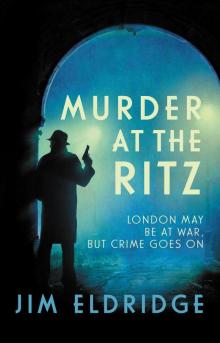 Murder at the Ritz
Murder at the Ritz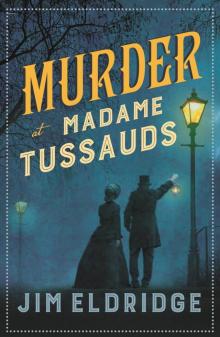 Murder at Madame Tussauds
Murder at Madame Tussauds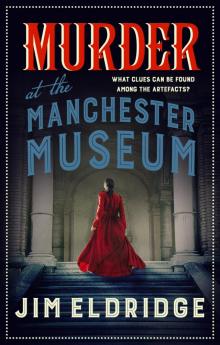 Murder at the Manchester Museum
Murder at the Manchester Museum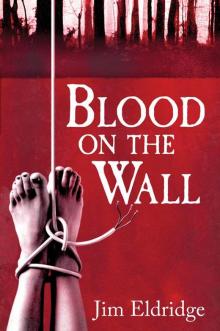 Blood On the Wall
Blood On the Wall 4.3.2.1
4.3.2.1 Jungle Kill (Black Ops)
Jungle Kill (Black Ops)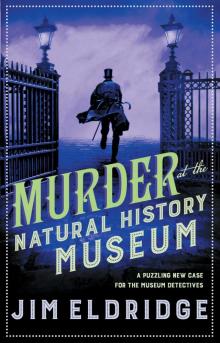 Murder at the Natural History Museum
Murder at the Natural History Museum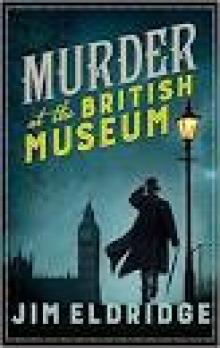 Murder at the British Museum
Murder at the British Museum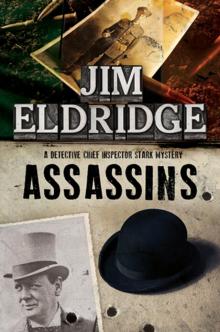 Assassins
Assassins Hunk and Thud
Hunk and Thud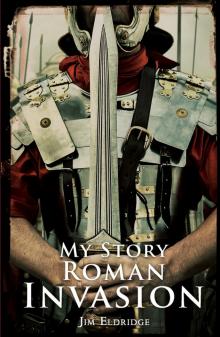 Roman Invasion
Roman Invasion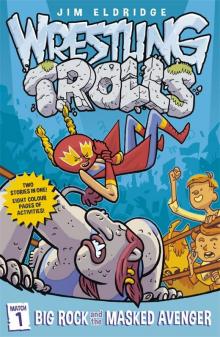 Big Rock and the Masked Avenger
Big Rock and the Masked Avenger The Last Enemy
The Last Enemy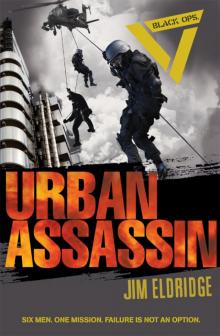 Urban Assassin
Urban Assassin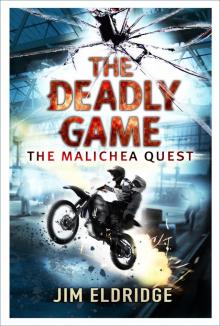 The Deadly Game
The Deadly Game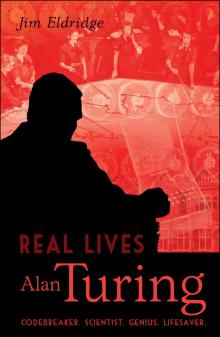 Alan Turing
Alan Turing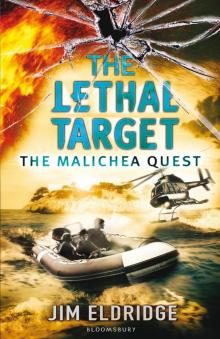 The Lethal Target
The Lethal Target The Giant Rumble
The Giant Rumble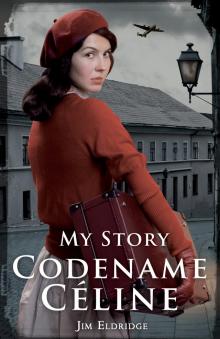 Codename Céline
Codename Céline Death in the Desert
Death in the Desert Escape from Pompeii
Escape from Pompeii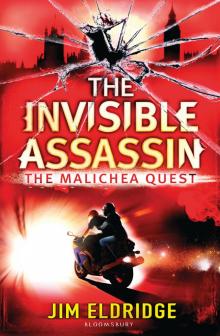 The Invisible Assassin
The Invisible Assassin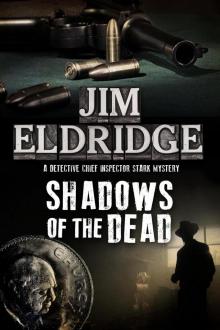 Shadows of the Dead
Shadows of the Dead Jack Versus Veto
Jack Versus Veto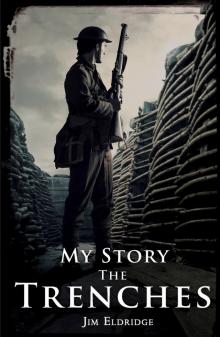 The Trenches
The Trenches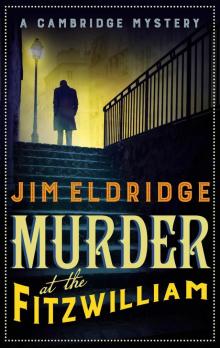 Murder at the Fitzwilliam
Murder at the Fitzwilliam Coming Home
Coming Home